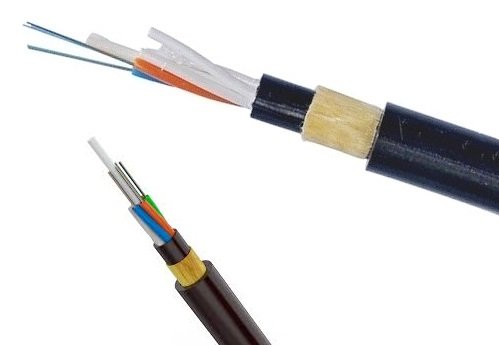What is an All-Dielectric Self-Supporting (ADSS) Cable?
All-dielectric self-supporting (ADSS) cable is a type of fiber optic cable designed for aerial installation in telecommunication networks. Unlike traditional cables that require additional support structures like messenger wires or metallic elements for physical strength, ADSS cables are inherently self-supporting due to their unique design.

Application
ADSS cables are commonly used in the deployment of optical fiber networks for various applications, including telecommunications, broadband internet, and data transmission. They are particularly well-suited for installation along overhead utility lines, such as power lines and railway tracks, providing a cost-effective solution for long-distance communication infrastructure.
Advantages
- Self-supporting Design: ADSS cables eliminate the need for a separate support structure, reducing installation complexity and costs. This feature makes them easier and quicker to deploy in various environments.
- Lightweight: The absence of metal components makes ADSS cables lightweight, minimizing the load on supporting structures and simplifying installation procedures.
- Dielectric Construction: The cables are constructed with dielectric (non-conductive) materials, providing high electrical insulation. This makes them suitable for areas with high electrical interference, such as power lines, without the risk of electrical grounding.
- Weather Resistance: ADSS cables are designed to withstand harsh environmental conditions, including UV radiation, extreme temperatures, and ice loading. This durability ensures reliable performance in challenging outdoor settings.
- Low Maintenance: The self-supporting design and robust construction contribute to a lower maintenance requirement compared to cables with additional support structures.
Disadvantages
- Cost: ADSS cables can be more expensive to manufacture than traditional cables. However, this cost is often offset by savings in installation and maintenance expenses.
- Limited Span Length: The self-supporting nature of ADSS cables imposes a maximum span length limitation. Beyond a certain distance, additional support may be required to prevent sagging and maintain signal integrity.
- Installation Challenges: While ADSS cables simplify installation in many scenarios, the process can be more challenging in certain terrains or densely populated areas where navigating obstacles may be problematic.
All-dielectric self-supporting cables offer a practical and efficient solution for aerial fiber optic installations, especially in environments with overhead utility lines. Their self-supporting design, lightweight construction, and resilience to environmental factors make them a preferred choice for telecommunications infrastructure, despite some inherent limitations.